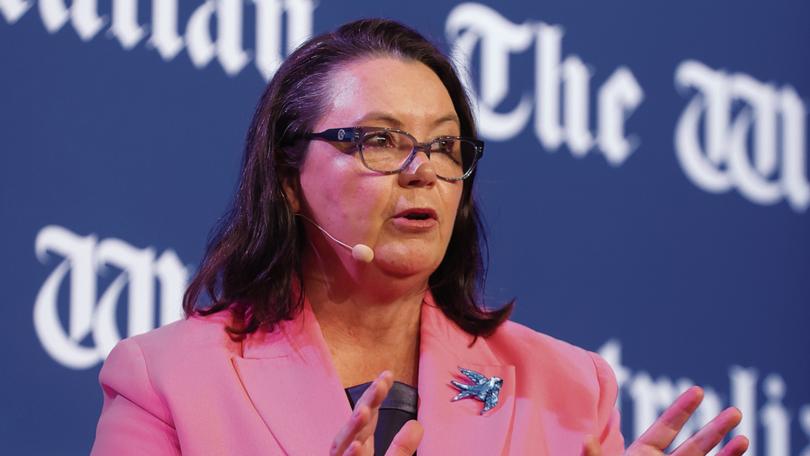Offshore gas: Labor remains committed to new consultation rules despite shelving laws
The Albanese Government has been forced to defend its commitment to overhauling consultation rules for offshore gas projects, three months after the forced scrapping of ‘lawfare’ prevention legislation.

The Albanese Government has been forced to defend its commitment to overhauling consultation rules for offshore gas projects, three months after the forced scrapping of ‘lawfare’ prevention legislation.
The “complexity and ambiguity” of the existing system continue to shake industry confidence, three months since the Government shelved laws designed to curb “lawfare” against major gas projects after blowback from the Greens, Indigenous groups and environmentalists.
The laws would have given Resources Minister Madeleine King the power to “clarify” consultation requirements for offshore gas projects to avoid a repeat of the legal challenges that threatened to derail Santos’ Barossa project and Woodside’s massive Scarborough venture.
Sign up to The Nightly's newsletters.
Get the first look at the digital newspaper, curated daily stories and breaking headlines delivered to your inbox.
By continuing you agree to our Terms and Privacy Policy.The two gas giants and industry peak body Australian Energy Producers (AEP) on Monday expressed their ongoing concerns with the existing regime in evidence to a Senate inquiry in Perth.
“The lack of clarity in the offshore environment regulations continue to impose a significant regulatory burden for industry, the independent regulator NOPSEMA and other stakeholders, which is resulting in significantly longer assessment periods for critical new gas supply projects,” AEP policy and advocacy general manager Victor Violante told the hearing.
A spokesman for Ms King said the Federal Government was committed to improving consultation processes to instil community confidence in the industry.
“I am looking at ways to provide greater clarity and certainty to all stakeholders,” the spokesman said.
“I want to make sure that genuine consultation is undertaken before any offshore activity commences.
“We will have more to say on our approach in bringing certainty to consultation requirements in due course.”
Ms King’s office accused the Greens, crossbenchers and “others” of spreading misinformation about the legislation, which Labor eventually agreed to put on the back burner under a deal to pass its fuel efficiency standards and changes to hike the Petroleum Resource Rent Tax.
Critics claimed Labor was planning to use the laws — which were buried in an otherwise uncontroversial bill to improve gas worker safety — to silence Indigenous communities in order to fast-track approvals for offshore projects.
“The minister is disappointed that communities will remain subject to inadequate and inappropriate consultation requirements, for longer,” Ms King’s spokesman.
The Senate inquiry was examining an alternative Greens proposal to ensure Traditional Owners are properly consulted on offshore gas projects.
The committee heard evidence from Murujuga traditional custodian Raelene Cooper, who used the courts to temporarily halt seismic testing at Woodside’s Scarborough project.
The gas giant later obtained fresh approval from regulator NOPSEMA.
Ms Cooper separately applied to protect the sacred Murujuga rock art under section 10 of the Aboriginal and Torres Strait Islander Heritage Protection Act – the same provision that torpedoed Regis Resources’ $1 billion McPhillamys gold mine in regional NSW.
She is still waiting on a decision on the section 10 application, which was submitted in early 2022.
“There has never been genuine consultation under the principles of free, prior and informed consent,” Ms Cooper said of Woodside’s project.
